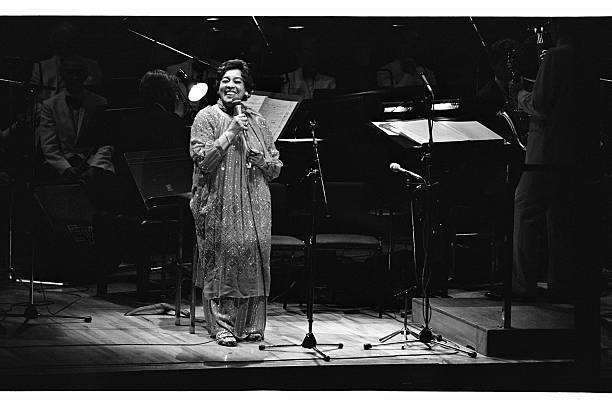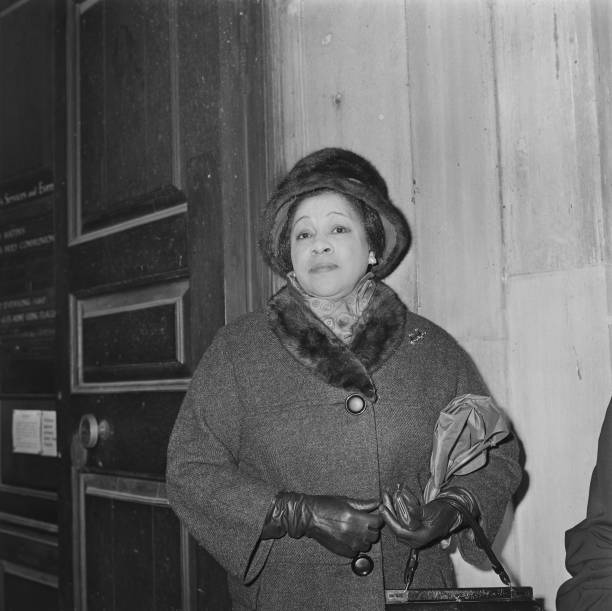Adelaide Hall, a name synonymous with jazz and enduring talent, etched her indelible mark in the annals of music history. As the first female vocalist to sing and record with the legendary Duke Ellington, Hall’s contribution to the world of music is immeasurable. Her remarkable career spanned eight glorious decades, making her one of the most enduring female recording artists of the 20th century. In 1941, Hall’s popularity soared to new heights as she took the mantle of Britain’s highest-paid female entertainer, succeeding the renowned Gracie Fields.

A Timeless Legacy:
Hall’s influence on the world of music and jazz is undeniable. In “100 Great Records of the 1920s,” her collaboration with Duke Ellington on “The Blues I Love to Sing” earned her the 26th spot, showcasing her vocal prowess and the enduring quality of her work.
Renowned writer Langston Hughes, in his book “Famous Negro Music Makers,” acknowledged the pivotal role jazz singers played in the evolution of this musical genre. Hall’s name finds its rightful place among jazz luminaries like Louis Armstrong, Cab Calloway, Ella Fitzgerald, and Billie Holiday, marking her as an exceptional jazz vocalist of her time.
A Muse for Literature:
Hall’s influence extended beyond music and into the world of literature. Blair Niles’ novel “Strange Brother,” set in the vibrant backdrop of New York in the late 1920s and early 1930s, featured Hall, recognizing her as an icon of the era.
In Marsha Hunt’s 1998 novel “Like Venus Fading,” Hall’s life served as an inspiration alongside Josephine Baker and Dorothy Dandridge. These novels paid tribute to the remarkable impact Hall had on her audiences and the profound cultural significance she held.
A Fictional Glimpse into History:
The enchanting aura that Hall exuded during her performances at the iconic Cotton Club found its way into Ron Kase’s fictionalized account in the 2017 novel “A Time in Ybor City.” This account vividly depicts Hall’s mesmerizing 11:00 o’clock evening performance in the Cotton Club Parade revue, with the likes of George Gershwin in the audience. While it is a fictionalized narrative, it captures the essence of Hall’s magnetic stage presence.
A Trailblazer Recognized:
Hall’s contribution to music and her cultural significance was celebrated when she was named by the Evening Standard as one of “14 Inspirational Black British Women Throughout History.” This recognition underscores her enduring impact and the trail she blazed for future generations.
Conclusion:
Adelaide Hall’s name resonates through the corridors of music and literature, leaving an indomitable legacy that continues to inspire and captivate. Her collaboration with Duke Ellington, her status as a pioneering jazz vocalist, and her recognition as an inspirational figure in history showcase her unparalleled contributions. In a world where time often dims the brilliance of stars, Adelaide Hall’s light continues to shine brightly, reminding us of her extraordinary talent and enduring influence.




